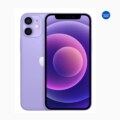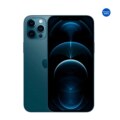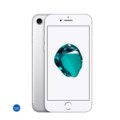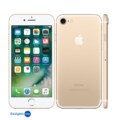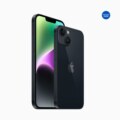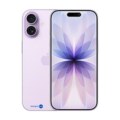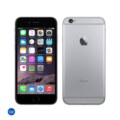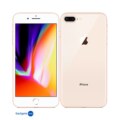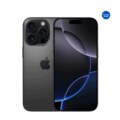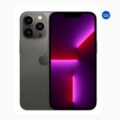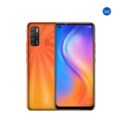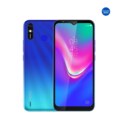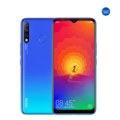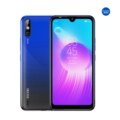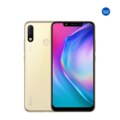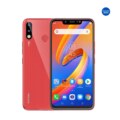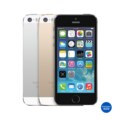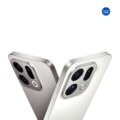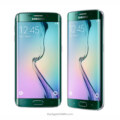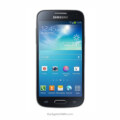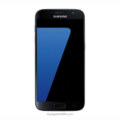Apple iPhone 6 Plus
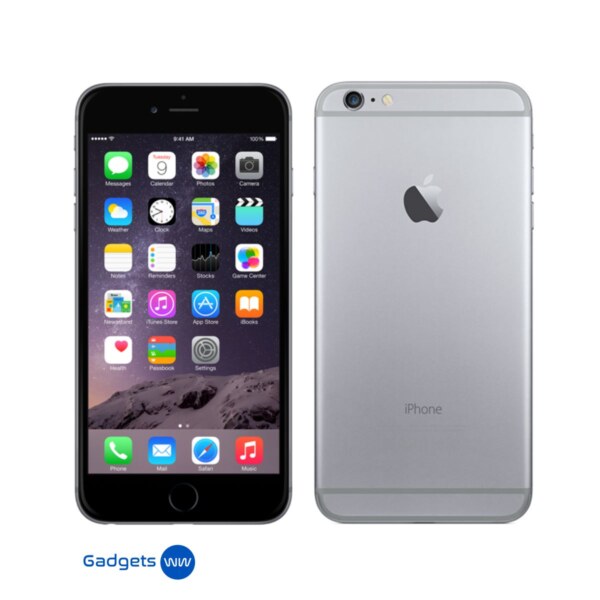

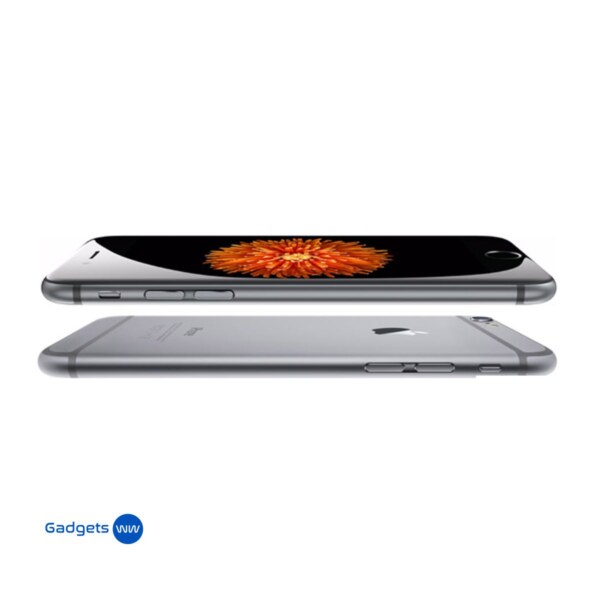
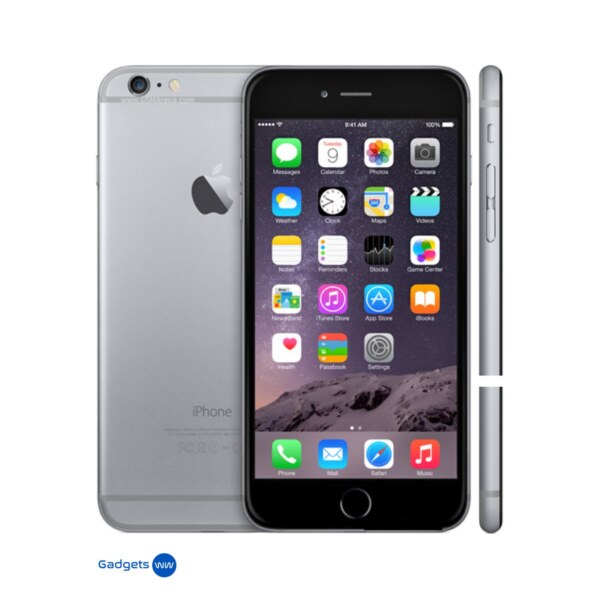
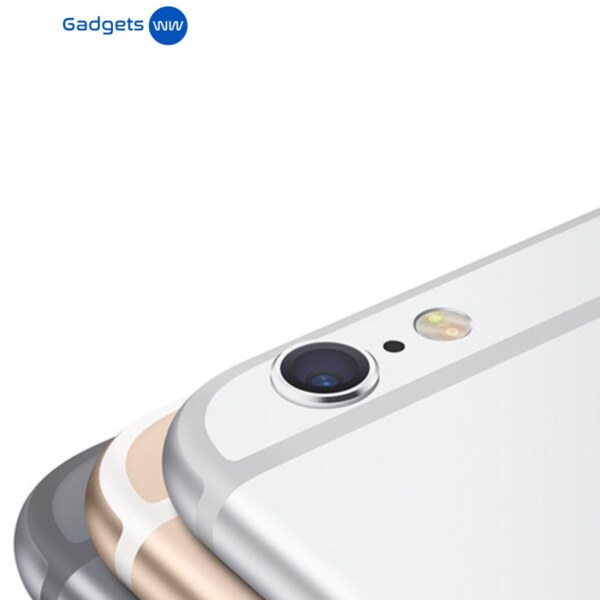
-
Display: 5.5" (1080x1920 pixels)
-
Processor: Apple A8
-
Rear Camera: 8 MP
-
RAM: 1GB
-
Storage: 16GB / 64GB / 128GB / no card slot
-
OS: iOS 8, up to iOS 12.5.7
-
Battery: 2915mAh
iPhone 6 Plus: Apple’s Bold Step Into Big-Screen Territory
It’s finally here.
After months of speculation, leaked schematics, blurry photos, and wild rumors, Apple has officially unveiled the iPhone 6 Plus, and it’s not just another iteration of the iPhone line. This is Apple’s first true phablet (phone + tablet) and a bold departure from the company’s historically conservative approach to screen sizes.
At 5.5 inches, the iPhone 6 Plus represents a significant shift in Apple’s mobile strategy, one that puts it squarely in competition with Android flagships like the Samsung Galaxy Note 4, HTC One Max, and LG G3. But does bigger mean better? Is this just a stretched-out iPhone 6, or is the 6 Plus Apple’s statement to the world that it can still innovate in a market it helped define?
Let’s break it all down.
A New Design Philosophy
The first thing you’ll notice about the iPhone 6 Plus is how different it feels compared to its predecessors. Gone are the sharp, chamfered edges of the iPhone 5 and 5s. In their place, the 6 Plus features smooth, rounded curves, a design reminiscent of the original iPhone, but sleeker, thinner, and more refined.
At just 7.1mm thick, it’s surprisingly slim for a phone of this size. It doesn’t feel bulky, though you’ll definitely need to adjust your grip. One-handed use is possible, but not entirely practical unless you have large hands. Apple has added a new software feature called Reachability, double-tapping (not pressing) the home button slides the screen down so you can reach the top elements. It’s a clever workaround for a problem Apple has long avoided: making phones that are too big to use comfortably with one hand.
It’s worth noting: the iPhone 6 Plus feels premium. With its all-metal body, curved glass edges, and seamless transitions, it makes many plastic-bodied Android phones look dated and cheap.
Display: Retina HD on a Whole New Level
The star of the show is undoubtedly the 5.5-inch Retina HD display. With a resolution of 1920×1080 (Full HD) and a pixel density of 401 PPI, the screen is not only sharp, it’s stunning.
Colors are vibrant without being oversaturated. Viewing angles are excellent, thanks to dual-domain pixels. Blacks are deep, whites are crisp, and the overall contrast is improved over previous iPhones. Whether you’re watching HD movies, playing games, or just browsing the web, the 6 Plus offers a noticeably richer visual experience.
This is Apple embracing the fact that users want bigger screens, not just for novelty, but for productivity, entertainment, and media consumption.
Camera: An Optical Upgrade
While the iPhone 6 and 6 Plus both come with an 8MP iSight camera, the 6 Plus gets one major advantage: Optical Image Stabilization (OIS).
This hardware feature compensates for hand movement when taking photos or shooting videos. The result? Sharper low-light photos and smoother videos, especially when you’re on the move. It’s a significant step up from the digital stabilization used in smaller iPhones.
In typical Apple fashion, the improvements aren’t just on paper. Real-world shots from the 6 Plus are crisp, detailed, and balanced in dynamic range. The camera app is snappy, intuitive, and now includes features like time-lapse video, 240fps slow motion, and improved HDR.
For many users, this may become their only camera, and that’s saying a lot.
Performance: A8 and M8 Take the Stage
Under the hood, the iPhone 6 Plus is powered by Apple’s new A8 chip, a 64-bit processor that’s smaller, faster, and more energy efficient than the A7 found in the iPhone 5s. Paired with the M8 motion co-processor, it delivers smooth performance across the board.
Apps open quickly. Transitions are buttery smooth. Games run flawlessly, and with Metal, Apple’s new graphics API, developers now have even more power to create visually rich mobile experiences.
Benchmarks aside, what really matters is how it feels, and the iPhone 6 Plus feels fast, fluid, and future-ready.
Battery Life: Finally, an iPhone That Lasts All Day (and Then Some)
One of the most common complaints about past iPhones has been battery life. With the 6 Plus, Apple seems to have heard those cries.
Thanks to the larger chassis, Apple has packed in a significantly bigger battery. Combined with the efficiency of the A8 chip and iOS 8, the iPhone 6 Plus easily lasts a full day of moderate to heavy use, and in some cases, even longer.
Whether you’re streaming music, watching Netflix, using GPS, or browsing the web, the 6 Plus stands out as one of the best-performing iPhones in terms of battery life.
Finally.
iOS 8: Optimized for the Bigger Screen
The iPhone 6 Plus ships with iOS 8, and Apple has made some important tweaks to accommodate the new display size.
For the first time on an iPhone, you get a two-pane landscape mode in apps like Mail, Messages, and Notes, very similar to what you’d see on an iPad. This makes the Plus feel less like a big phone and more like a hybrid device, especially useful for productivity.
Apple has also introduced new keyboard support, interactive notifications, HealthKit integration, Family Sharing, and other features that make iOS 8 one of the most versatile mobile OS updates in years.
Storage and Pricing
The iPhone 6 Plus comes in three capacities:
- 16GB (for the budget-conscious, though this is tight for a device like this)
- 64GB (the sweet spot for most users)
- 128GB (a first for Apple, ideal for heavy media users)
Prices (on a 2-year contract):
- 16GB – $299
- 64GB – $399
- 128GB – $499
It’s definitely a premium product, but Apple isn’t shy about pricing it that way. If you want the big screen and big battery, you’ll have to pay up.
Final Thoughts: Is the iPhone 6 Plus Worth It?
In a word: yes, if you’re ready for a bigger phone.
The iPhone 6 Plus isn’t just a larger iPhone. It’s Apple’s answer to the growing demand for phablets, and it delivers in nearly every department. From the gorgeous Retina HD display and impressive camera improvements to the all-day battery life and snappy performance, the 6 Plus proves that Apple can still surprise us.
Of course, it’s not for everyone. Some may find it too large for everyday use. Others may worry about the (now infamous) “bendgate” rumors starting to pop up online. And for those who prefer one-handed use or more pocketable devices, the regular iPhone 6 might be the better fit.
But for those who’ve been waiting for an iPhone that does more, that gives you room to read, work, play, and create, the iPhone 6 Plus is Apple’s most ambitious smartphone yet.
Rating: 9/10
“Big, bold, and beautifully built, the iPhone 6 Plus marks a new chapter for Apple and a compelling option for power users.”
What do you think of the iPhone 6 Plus? Too big or just right? Let us know in the comments below!
Specs
LAUNCH
| Announced | 2014, September 09. Released 2014, September 19 |
| Availability | Discontinued |
NETWORK
| 2G Bands | GSM 850 / 900 / 1800 / 1900 - A1522 (GSM), A1522 (CDMA), A1524 CDMA 800 / 1700 / 1900 / 2100 - A1522 (CDMA), A1524 |
| 3G Bands | HSDPA 850 / 900 / 1700 / 1900 / 2100 - A1522 (GSM), A1522 (CDMA), A1524 CDMA2000 1xEV-DO - A1522 (CDMA), A1524 TD-SCDMA - A1524 |
| 4G Bands | 1, 2, 3, 4, 5, 7, 8, 13, 17, 18, 19, 20, 25, 26, 28, 29 - A1522 GSM, A1522 CDMA 1, 2, 3, 4, 5, 7, 8, 13, 17, 18, 19, 20, 25, 26, 28, 29, 38, 39, 40, 41 - A1524 |
| Speed | HSPA 42.2/5.76 Mbps, LTE Cat4 150/50 Mbps, EV-DO Rev.A 3.1 Mbps |
| Technology | GSM / CDMA / HSPA / EVDO / LTE |
DESIGN
| Measurements | 158.1 x 77.8 x 7.1 mm (6.22 x 3.06 x 0.28 in) |
| Weight | 172 g (6.07 oz) |
| Build | Glass front (Corning-made glass), aluminum back, aluminum frame |
| SIM | Nano-SIM Apple Pay (Visa, MasterCard, AMEX certified) |
DISPLAY
| Type | IPS LCD |
| Size | 5.5 inches, 83.4 cm2 (~67.8% screen-to-body ratio) |
| Resolution | 1080 x 1920 pixels, 16:9 ratio (~401 ppi density) |
| Protection | Ion-strengthened glass, oleophobic coating |
PLATFORM
| OS | iOS 8, upgradable to iOS 12.5.7 |
| Chipset | Apple A8 (20 nm) |
| CPU | Dual-core 1.4 GHz Typhoon (ARM v8-based) |
| GPU | PowerVR GX6450 (quad-core graphics) |
MEMORY
| Card Slot | No |
| Internal | 16GB 1GB RAM, 64GB 1GB RAM, 128GB 1GB RAM |
REAR CAMERA
| Single | 8 MP, f/2.2, 29mm (standard), 1/3.0", 1.5µm, PDAF, OIS |
| Features | Dual-LED dual-tone flash, HDR |
| Video | 1080p@60fps, 720p@240fps |
SELFIE CAMERA
| Single | 1.2 MP, f/2.2, 31mm (standard) |
| Features | face detection, HDR, FaceTime over Wi-Fi or Cellular |
| Video | 720p@30fps |
SOUND
| Loudspeaker | Yes |
| 3.5mm Jack | Yes 16-bit/44.1kHz audio |
COMMUNICATION
| WLAN | Wi-Fi 802.11 a/b/g/n/ac, dual-band, hotspot |
| Bluetooth | 4.0, A2DP, LE |
| Positioning | GPS, GLONASS |
| NFC | Yes (Apple Pay only) |
| Radio | No |
| USB | Lightning, USB 2.0 |
FEATURES
| Sensors | Fingerprint (front-mounted), accelerometer, gyro, proximity, compass, barometer |
BATTERY
| Kind | Li-Po 2915 mAh, non-removable (11.1 Wh) |
| Standby | Up to 384 h (3G) |
| Talktime | Up to 24 h (3G) |
OTHERS
| Colors | Space Gray, Silver, Gold |
| Models | A1522, A1524, iPhone7,1 |
| SAR | 1.19 W/kg (head) 1.19 W/kg (body) |
| SAR EU | 0.99 W/kg (head) 0.91 W/kg (body) |
PRICE
| Nigeria | ₦92,160.60 |
| UK | £325.99 |
| USA | US$508.06 |
| India | ₹31,995.60 |
EU LABEL
Reviews
Disclaimer Note
The reviews, opinions, and information shared on this blog are based on personal experiences, research, and available product details at the time of writing. While we strive to provide accurate and up-to-date information, we cannot guarantee that all specifications, prices, or features remain current.


